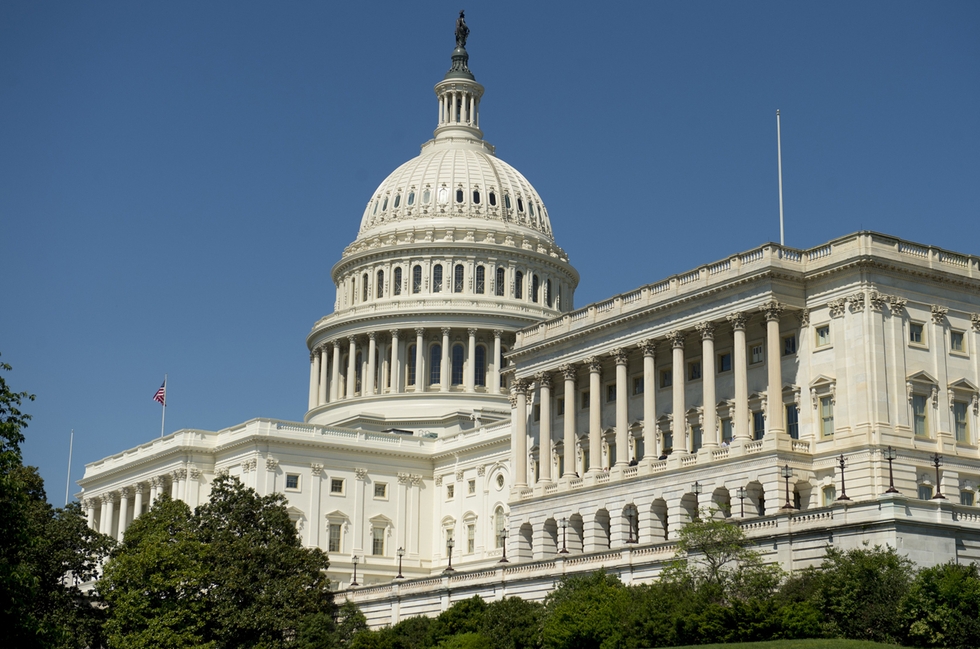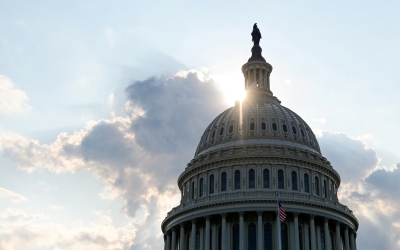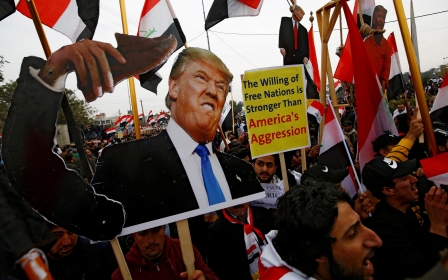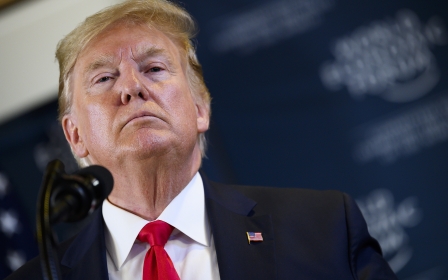'No president should have a blank check for war': US House votes to repeal Iraq war authorisation

The Democratic-controlled House has taken steps to curb the president's ability to go to war with Iran, by passing a proposal to repeal the 2002 authorisation for the Iraq war as well as a measure to prevent tax dollars from being used to take military action against Iran without congressional approval.
The measure to repeal the 2002 authorisation was approved with a 236-166 vote, and the funding measure on Iran passed 228-175.
"For far too long, Congress has been missing in action on matters of war and peace," Democratic Congresswoman Barbara Lee, who sponsored the measure repealing the 2002 war authorisation, said in a statement on Thursday.
'It is time to end giving blank checks to any president to wage endless wars'
- Congresswoman Barbara Lee
The actions follow a 9 January vote by the House asserting that Trump must seek approval from Congress before engaging in further military action against Iran.
All three measures, however, are unlikely to get passed in the Republican-majority Senate.
New MEE newsletter: Jerusalem Dispatch
Sign up to get the latest insights and analysis on Israel-Palestine, alongside Turkey Unpacked and other MEE newsletters
But the measure to repeal the 2002 authorisation could potentially do away with a law that has been used by the past three administrations to justify military strikes conducted without congressional approval.
Trump's national security adviser, Robert O'Brien, had initially said that killed Iranian General Qassim Suleimani ealier this month was justified by the 2002 law.
The Trump administration has since changed tack, saying the strike was a matter of self-defense under international law, citing imminent threats to attack US interests in the region.
Meanwhile, Obama used the legislation in 2014 to justify airstrikes in Syria against the Islamic State group, while the Bush administration used the law to authorise military force in Iraq against Saddam Hussein's government.
Lee called the repeal vote long overdue, adding: "It is time to end giving blank checks to any president to wage endless wars."
Congress' power of the purse
California Congressman Ro Khanna, who also sponsored the legislation, said the measure does not prevent Trump from acting in defense of US interests, but that Congress must authorise the spending of federal funds on any such military action.
"It's high time Congress reasserted our power of the purse and made clear to any president that they must come to us first before taking any offensive military action. War should always be a last resort," Khanna said.
Republicans, however, rejected the measure, saying Democrats in the House were acting irresponsibly.
"After President Trump took decisive action to take out a brutal Iranian terrorist responsible for the deaths of hundreds of Americans, Democrats now seek to restrain our president and restrict his ability to protect our nation,'' said Congressman Steve Scalise, the second-highest Republican figure in the House.
The bills, "severely restrict the president's authority to protect Americans from terrorist threats and fight ISIS,'' Scalise said, referring to the Islamic State (IS) group.
In the Senate, Democratic Senator Tim Kaine said he has at least 51 votes to support his measure asserting that Trump must seek approval from Congress before engaging in further military action against Iran.
Middle East Eye delivers independent and unrivalled coverage and analysis of the Middle East, North Africa and beyond. To learn more about republishing this content and the associated fees, please fill out this form. More about MEE can be found here.





